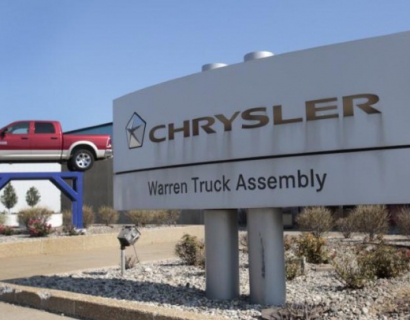Everything for  Business
Business
 Business
Business
 Business
Business
DETROIT (Reuters) - Fiat Chrysler Automobiles (FCHA.MI) (FCAU.N) said on Thursday it will shift production of Ram heavy-duty pickup trucks from Mexico to Michigan in 2020, a move that lowers the risk to the automaker’s profit should President Donald Trump

DETROIT (Reuters) - Fiat Chrysler Automobiles (FCHA.MI) (FCAU.N) said on Thursday it will shift production of Ram heavy-duty pickup trucks from Mexico to Michigan in 2020, a move that lowers the risk to the automaker’s profit should President Donald Trump pull the United States out of the North American Free Trade Agreement.
Fiat Chrysler said it would create 2,500 jobs at a factory in Warren, Michigan, near Detroit and invest $1 billion in the facility. The Mexican plant will be “repurposed to produce future commercial vehicles” for sale global markets. Mexico has free trade agreements with numerous countries.
Fiat Chrysler Chief Executive Sergio Marchionne a year ago raised the possibility that the automaker would move production of its heavy-duty pickups to the United States, saying U.S. tax and trade policy would influence the decision.
If the United States exits NAFTA, it could mean that automakers would pay a 25 percent duty on pickup trucks assembled in Mexico and shipped to the United States. About 90 percent of the Ram heavy-duty pickups made at Fiat Chrysler’s Saltillo plant in Mexico are sold in the United States or Canada, company officials said.
Negotiators for the United States, Mexico and Canada are scheduled to meet later this month for another round of talks on revising NAFTA. Canadian government officials earlier this week said they are convinced that Trump intends to announce his intention to quit the agreement.
Trump has threatened to force the rollback of NAFTA, which enables the free flow of goods made in the United States, Canada and Mexico across the borders of those countries. He also has criticized automakers for moving jobs and investment in new manufacturing facilities to Mexico and prodded them to add more auto production in the United States.
On Wednesday, Toyota Motor Corp and Mazda Motor Corp announced they would build a new $1.6 billion joint venture auto assembly plant in Alabama, drawing praise from Trump.
Vice President Mike Pence praised Fiat Chrysler’s announcement. ”Manufacturing is back. Great announcement. Proof that this admin’s AMERICA FIRST policies are WORKING!” Pence said in a Twitter posting.
Chrysler raised its output in Mexico by 39 percent in 2017 to 639,000 vehicles, according to Mexican government data. That made Fiat Chrysler the third-largest producer of vehicles in Mexico in 2017, after Nissan Motor Co (7201.T) and General Motors Co (GM.N).
The United States and Canada are the principal markets for full-size heavy-duty pickup trucks, most of which are produced in the United States by FCA, GM, Ford Motor Co (F.N), Toyota Motor Corp (7203.T) and Nissan Motor Co (7201.T).
Miguel Ceballos, FCA spokesman for Mexico, said the company in 2018 and 2019 expects more growth in Mexico, and the moment it stops producing the Ram Heavy Duty pickups it will start to produce the new commercial vehicle, “which still does not have a name,” Ceballos said.
“It is going to be for global distribution, at the moment the Ram is only distributed at the level of NAFTA,” he said.
Ceballos said there was no current plan to either reduce or grow the workforce in Mexico.
GM has been readying a plant in Silao, Mexico, to build a new generation of large pickup trucks.
FCA on Thursday said it also would make a special bonus payment of $2,000 to about 60,000 FCA hourly and salaried employees in the United States totalling about $120 million. Typically, U.S. automakers only pay bonuses to hourly workers as part of collective bargaining agreements.
A source: https://uk.reuters.com
 As the U.S. IPO market languishes, listings head east to booming China.
As the U.S. IPO market languishes, listings head east to booming China.
 Pound sterling rises as traders ponder the agenda of new British Prime Minister Truss
Pound sterling rises as traders ponder the agenda of new British Prime Minister Truss
 Central Banks in Jackson Hole Take Tougher Mission Ahead
Central Banks in Jackson Hole Take Tougher Mission Ahead
 Bitcoin continues to retreat as the 200-week average focuses again
Bitcoin continues to retreat as the 200-week average focuses again
 Private investors buy up retail real estate as major players remain cautious
Private investors buy up retail real estate as major players remain cautious
This site uses cookies and other visitor identifiers for the convenience of each user. If you stay on our site after reading this message, it means that you have no objection to the use of these technologies. Learn more
